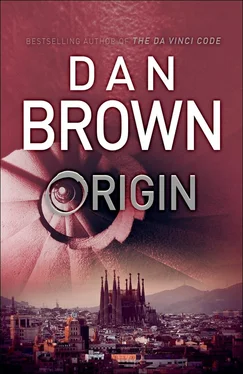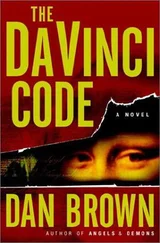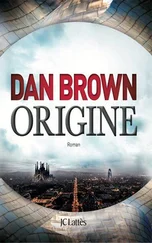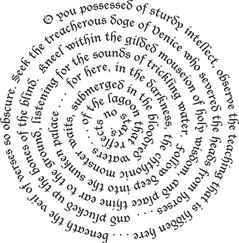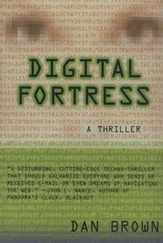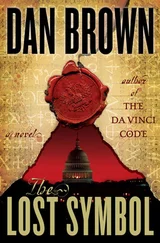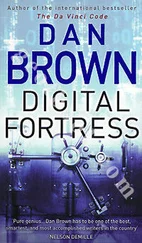Edmond held the Miller-Urey vial and smiled. “I’m guessing you can see where I’m going with this. Computer modeling is a kind of time machine, and it lets us see the future... perhaps even billions of years into the future.”
Ambra shifted on the couch, her eyes never leaving Edmond’s face.
“As you can imagine,” Edmond said, “I am not the first scientist to dream of modeling the earth’s primordial soup. In principle, it’s an obvious experiment — but in practice, it’s a nightmare of complexity.”
Turbulent primordial seas appeared again amid lightning, volcanoes, and massive waves. “Modeling the ocean’s chemistry requires simulation at the molecular level. It would be like predicting the weather so accurately that we knew the precise location of every air molecule at any given moment. Any meaningful simulation of the primordial sea would therefore require a computer to understand not only the laws of physics — motion, thermodynamics, gravity, conservation of energy, and so forth — but chemistry as well, so it could accurately re-create the bonds that would form between every atom within a boiling ocean stew.”
The view above the ocean now plunged beneath the waves, magnifying down into a single drop of water, where a turbulent swirl of virtual atoms and molecules were bonding and breaking apart.
“Sadly,” Edmond said, reappearing on-screen, “a simulation confronted by this many possible permutations requires a massive level of processing power — far beyond the capability of any computer on earth.” His eyes again twinkled with excitement. “That is... any computer except one .”
A pipe organ rang out, playing the famous opening trill to Bach’s Toccata and Fugue in D Minor along with a stunning wide-angle photograph of Edmond’s massive two-story computer.
“E-Wave,” Ambra whispered, speaking for the first time in many minutes.
Langdon stared at the screen. Of course... it’s brilliant.
Accompanied by the dramatic organ soundtrack, Edmond launched into a fervent video tour of his supercomputer, finally unveiling his “quantum cube.” The pipe organ climaxed with a thunderous chord; Edmond was literally “pulling out all the stops.”
“The bottom line,” he concluded, “is that E-Wave is capable of re-creating the Miller-Urey experiment in virtual reality, with startling accuracy. I cannot model the entire primordial ocean, of course, so I created the same five-liter closed system that Miller and Urey used.”
A virtual flask of chemicals now appeared. The view of the liquid became magnified and remagnified until it reached the atomic level — showing atoms bouncing around in the heated mixture, bonding and rebonding, under the influences of temperature, electricity, and physical motion.
“This model incorporates everything we have learned about the primordial soup since the days of the Miller-Urey experiment — including the probable presence of hydroxyl radicals from electrified steam and carbonyl sulfides from volcanic activity, as well as the impact of ‘reducing atmosphere’ theories.”
The virtual liquid on-screen continued to roil, and clusters of atoms began to form.
“Now let’s fast-forward the process...,” Edmond said excitedly, and the video surged ahead in a blur, showing the formation of increasingly complex compounds. “After one week, we start to see the same amino acids that Miller and Urey saw.” The image blurred again, moving faster now. “And then... at about the fifty-year mark, we start to see hints of the building blocks of RNA.”
The liquid kept churning, faster and faster.
“And so I let it run!” Edmond shouted, his voice rising in intensity.
The molecules on-screen continued to bond, the complexity of the structures increasing as the program fast-forwarded centuries, millennia, millions of years. As the images raced ahead with blinding speed, Edmond called out joyfully, “And guess what eventually appeared inside this flask?”
Langdon and Ambra leaned forward with excitement.
Edmond’s exuberant expression suddenly deflated. “Absolutely nothing ,” he said. “No life. No spontaneous chemical reaction. No moment of Creation. Just a jumbled mix of lifeless chemicals.” He let out a heavy sigh. “I could draw only one logical conclusion.” He stared dolefully into the camera. “Creating life... requires God .”
Langdon stared in shock. What is he saying?
After a moment, a faint grin crept across Edmond’s face. “Or,” he said, “perhaps I had missed one key ingredient in the recipe.”
Ambra Vidal sat mesmerized, imagining the millions of people around the globe who, right now, just like her, were fully engrossed in Edmond’s presentation.
“So, what ingredient was I missing?” Edmond asked. “Why did my primordial soup refuse to produce life? I had no idea — so I did what all successful scientists do. I asked somebody smarter than I am!”
A scholarly bespectacled woman appeared: Dr. Constance Gerhard, biochemist, Stanford University. “How can we create life ?” The scientist laughed, shaking her head. “We can’t! That’s the point. When it comes to the process of creation — crossing that threshold where inanimate chemicals form living things — all of our science goes out the window. There is no mechanism in chemistry to explain how that happens. In fact, the very notion of cells organizing themselves into life-forms seems to be in direct conflict with the law of entropy!”
“ Entropy ,” Edmond repeated, now appearing on a beautiful beach. “Entropy is just a fancy way of saying: things fall apart. In scientific language, we say ‘an organized system inevitably deteriorates.’” He snapped his fingers and an intricate sand castle appeared at his feet. “I’ve just organized millions of sand grains into a castle. Let’s see how the universe feels about that.” Seconds later, a wave came in and washed away the castle. “Yup, the universe located my organized grains of sand and disorganized them, spreading them over the beach. This is entropy at work. Waves never crash onto beaches and deposit sand in the shape of a sand castle. Entropy dissolves structure. Sand castles never spontaneously appear in the universe, they only disappear.”
Edmond snapped his fingers again and reappeared in an elegant kitchen. “When you heat coffee,” he said, pulling a steaming cup from a microwave, “you focus heat energy into a mug. If you leave that mug on the counter for an hour, the heat dissipates into the room and spreads itself out evenly, like grains of sand on a beach. Entropy again. And the process is irreversible . No matter how long you wait, the universe will never magically reheat your coffee.” Edmond smiled. “Nor will it unscramble a broken egg or rebuild an eroded sand castle.”
Ambra recalled once seeing an art installation called Entropy — a line of old cement blocks, each more crumbled than the last, slowly disintegrating into a pile of rubble.
Dr. Gerhard, the spectacled scientist, reappeared. “We live in an entropic universe,” she said, “a world whose physical laws randomize , not organize. So the question is this: How can lifeless chemicals magically organize themselves into complex life-forms? I’ve never been a religious person, but I have to admit, the existence of life is the only scientific mystery that has ever persuaded me to consider the idea of a Creator.”
Edmond materialized, shaking his head. “I find it unnerving when smart people use the word ‘Creator’...” He gave a good-natured shrug. “They do it, I know, because science simply has no good explanation for the beginnings of life. But trust me, if you’re looking for some kind of invisible force that creates order in a chaotic universe, there are far simpler answers than God. ”
Читать дальше
